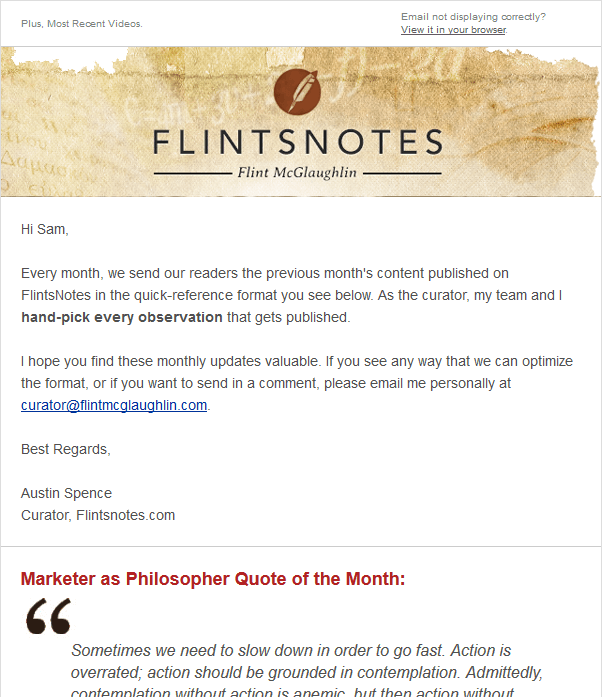Below is a collection of Dr. McGlaughlin’s most recent observations (500+). Most of these observations are made throughout the course of everyday life, captured by dictation, and added to FlintsNotes.com. You can read more about the observation capture process here. The content here changes 5 days a week, so be sure to check back often. Also, feel free to leave a comment in the comments section of each observation.

